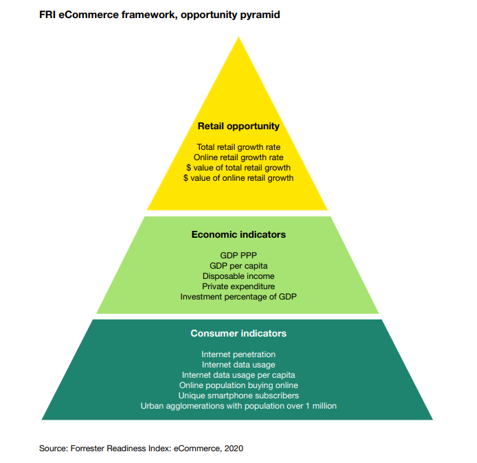
In the past several days, rapidly changing responses to COVID-19, a virus caused by a member of the coronavirus family, have led many retailers to temporarily shutter stores, and consumers to relegate their shopping to only the essentials. With signs of a pullback even before the virus hit so close to home — a pre-coronavirus decline in February sales growth reflects already dimming consumer sentiment — two basic questions emerge. How deep will the dip in consumer mood be, and how long it will last? And a third looming in the background: Will the outbreak, which has been global, spark a recession?
“Never before has the consumer been tested quite like this. Everyone’s learning about coronavirus at drastically different speeds and different times,” Simeon Siegel, managing director at BMO Capital Markets, told Retail Dive in an interview. “The question is first how long will the virus actually be here, and then how long will it be in people’s psyches.”
While President Trump on Monday predicted that pent-up demand will alleviate the impact on retail and on the economy more widely, he also admitted how uncertain that is. In fact, while it’s possible that shoppers return, some may find value in less consumption, according to Thomai Serdari, a professor of luxury marketing and branding at New York University’s Stern School of Business.
“From a consumer sentiment perspective, I can imagine that two scenarios are very plausible: consumers will spend less money during the lockdown and realize that they don’t need so much stuff in their life,” she told Retail Dive in an email. “Of course, the opposite may very well occur: Having been at home for 4-8 weeks (we don’t know yet, do we?), consumers will be interested in something to lift them up. Short-term, e-commerce will benefit, long-term, in person retail will offer the type of entertainment everyone will crave.”
The retailers suffering now
Thanks to their broad assortments, which include essentials like food and household products, retailers like grocery stores and also mass merchants like Walmart, Target and Costco are fairly well protected from retail’s immediate predicament, experts say. But specialty retailers and department stores, and the malls they are in, face great uncertainty. Those already on the brink could see their turnaround efforts cut short, analysts say.
“We think COVID-19 poses the biggest problems for companies with large US brick & mortar exposure, low EBIT margins, and high debt,” UBS analysts led by Jay Sole wrote in an emailed note Monday, adding that department stores and specialty stores are especially at risk, less so off-price stores. “Despite its large brick & mortar exposure, the [off-price] channel likely benefits from inventory dislocations, industry consolidation, and increased trade-down. Part of our bear case is COVID-19 catalyzes a recession which drives more consumers into value channels.”
Calling the situation “uncharted territory,” UBS analysts also said that a recession is likely, and noted that “essentially all major retail markets are affected to some degree.”
Ultimately, though, the effects of the epidemic on retail remain difficult to predict, and will probably come in waves, according to Nick Egelanian, president of retail development firm Siteworks.
“The answer is different for each of the last three days, and probably different tomorrow than it is today,” he told Retail Dive in an interview, noting that public health recommendations around people congregating have been revised multiple times in recent days, from guidance to limit to groups smaller than 250, then no greater than 50. “And now the president just got on TV and said to avoid groups of 10. So we’re getting into a whole different class of retail. People are not hanging out together, they aren’t going out to eat, they’re not going to larger shopping malls. Even gas stations will have less revenue because people are driving less right now. There will be greater long-term ramifications than people realize.”

